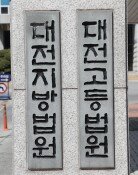Failure of intelligence and vigilance
Failure of intelligence and vigilance
Posted December. 03, 2010 11:20,
On the Nov. 23 shelling of Yeonpyeong Island by North Korea, South Korean National Intelligence Service Director Won Sei-hoon told the parliamentary intelligence committee Wednesday that his agency reported to President Lee Myung-bak of a potential North Korean attack on South Korean islands in the Yellow Sea after intercepting communication in August. Since the North has frequently launched similar provocations, we judged that it would attack waters beyond the Northern Limit Line and didnt expect attacks on civilians, Won said. In other words, signs of a provocation were detected but an attack was not expected.
An explanation by South Koreas Joint Chiefs of Staff also showed that Seoul did not take the intelligence seriously. They said, We secured intelligence that North Korea ordered its coastal gun base to be ready for counterattack if our forces held a firing drill. Though the North deployed forward 122-millimeter multiple rocket launchers at a cannon base in Gaemeori in Hwanghae Province two days before and on the day of the Yeonpyeong attack, the South failed to detect the situation. Such poor judgment and vigilance by the South Korean military and intelligence do not assure the South Korean people of their safety. When the North sank the South Korean naval warship Cheonan eight months ago, the Souths military failed to recognize the severity of the situation though it knew that a North Korean submarine disappeared 15 hours before the attack. Seoul must find out why such failures have recurred.
According to a National Intelligence Service report submitted to the parliamentary intelligence committee Wednesday, just 45 of the 80 shells the South fired at the North from K-9 self-propelled guns were identified. This means 35 shells fell into the sea. On the 45 shells, Kim Moo-sung, floor leader of South Koreas ruling Grand National Party, said, Satellite pictures of the 14 shells showed that no shell hit North Korean guns, and all 14 shells fell on rice fields. When the North launched the first wave of the attack, South Korean soldiers had to fire shells according to set coordinates since raiders did not operate, causing artillery shooters to miss targets. The failure of intelligence and vigilance resulted in botched military operations for the South.
In a phone survey of 700 adults that The Dong-A Ilbo commissioned to Korea Research Center, 57 percent urged stronger sanctions and pressure to change the North while 38.7 percent wanted an inter-Korean summit or special envoy to achieve a breakthrough. If Seoul wants to avoid the indignity of being at a loss in the face of Pyongyangs military attacks despite having an economy is 30 to 40 times larger, President Lee and the military must take decisive and determined action.




![“배달 시키면 버렸는데”…피자 가운데 ‘그것’ 200% 활용 꿀팁 [알쓸톡]](https://dimg.donga.com/c/138/175/90/1/wps/NEWS/IMAGE/2026/01/07/133111146.3.png)


